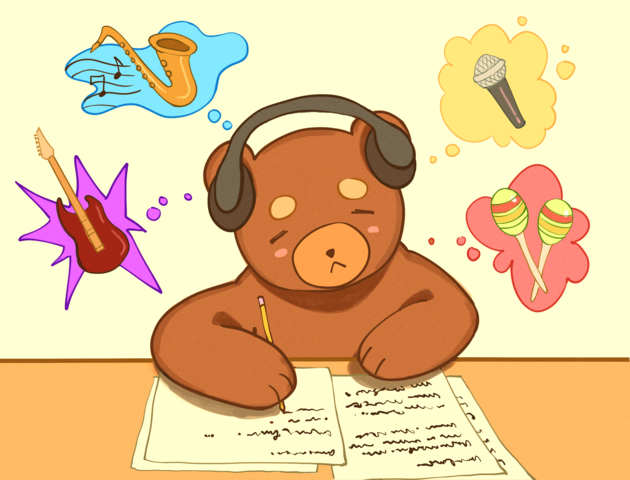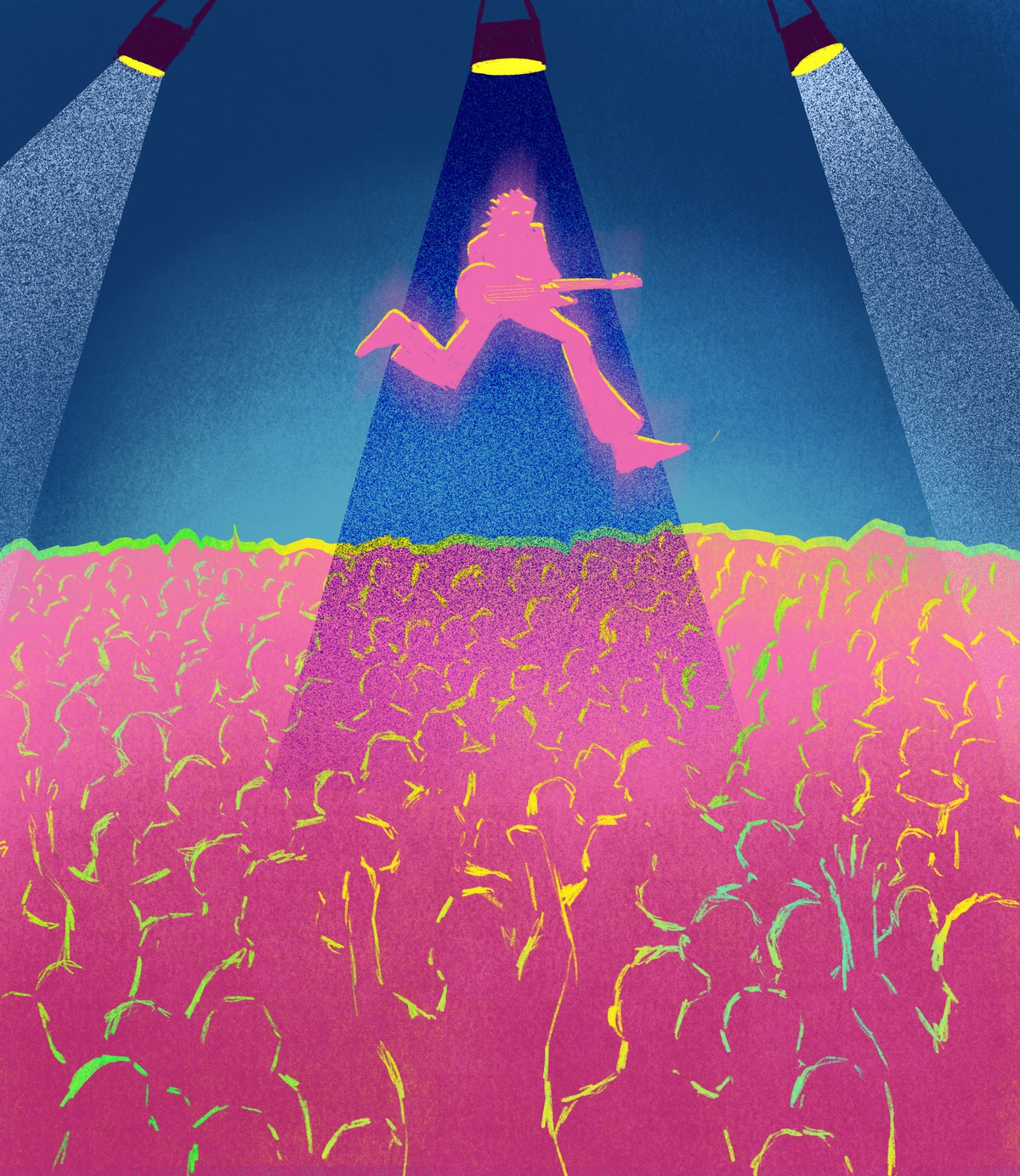Music sets tempo for many students’ social lives, productivity levels

By Katherine Wang
May 5, 2024 9:13 p.m.
Bruins may use music to accompany their studies and socialization as the rhythm of midterms season accelerates.
Research and student experiences suggest ties between music and the brain in influencing our emotions and behaviors. There is also emerging evidence for music’s potential to enhance social experiences and productivity.
Music may trigger emotions such as joy, sadness and tenderness, according to a study published in the Frontiers in Neuroscience journal. Distinguished psychology professor Robert Bilder said the semantic categories – the grouping of words and sounds with meanings – we attribute to music relate to an underlying emotional or physiological response to the music playing.
“If you listen to a passage of music and it makes you sad, it’s probably resonating with emotional centers in your brain first,” Bilder said. “It’s only after the emotional centers process that that you develop the semantic category.”
Semantic categories for genres of music, songs and melodies may be different for different individuals, Bilder added, such as loud music evoking excitement for some and frustration for others. He also said there is a critical period during which music preference is developed.
“People seem to really have a deep resonance to music that they hear and get into when they’re about 15 years old, plus or minus a few years,” Bilder said. “Throughout their lives, they tend to listen and have a deep identification with music that occurs at that time.”
Some students may view music as a trivial part of their everyday routine while others may consider music as integral to their lives.
Kate Greeley, a third-year music industry student, said music is an indispensable part of her daily life and a tool to foster connections.
“It’s really everything to me,” Greeley said. “When I was a kid, I always had headphones, I always had music playing, so music is very much a part of my daily life. I think music is a connector of people and of cultures, and I think it can be a really effective communicator and form of communication.”
According to an article published on Science.org, music is universal in that it exists across all societies but varies in formality, arousal level and religious relevance. Bilder also said there are common themes for music across cultures around the world, such as the melodies and rhythms of happy, sad and romantic music.
Second-year psychology student Lucia Cleveland said music is universal, such that she can listen to music in different languages and empathize with the emotions of a song without understanding the lyrics. She added that music is a coping mechanism for her and elicits specific memories.
“It’s very comforting and soothing to me to listen to music that I’m familiar with,” Cleveland said. “I can listen to a certain playlist or something that was from years ago, and I can remember the exact emotions and feelings and stress – or lack of stress – that I was feeling at the time.”
People regularly use music to regulate and boost their mood, according to a study published in Frontiers. A 2020 study published in the Health Psychology Review found music therapy – an approach where a trained music therapist uses personalized music interventions to improve an individual’s health – to be an effective method for reducing stress and anxiety.
Greeley said music helps validate and connect her to her emotions. She added that music can be therapeutic and transformative in reinforcing her emotions and encouraging positive behaviors, such as making her more productive.
Current research does not reach a universal conclusion of whether or not music influences productivity. While a study published in the Society for Education, Music and Psychology Research journal concludes that background music itself has no effect on productivity, another study published in the Perceptual and Motor Skills journal found that music increases cognitive task performance. Though many studies suggest a positive correlation between listening to music and our emotions and behaviors, there remains no conclusive result on whether music boosts productivity, according to Science Daily.
Whether or not music has any scientifically proven benefits, some Bruins may still prefer working with it. Cleveland said music is central to her productivity.
“I can’t not listen to music when I’m doing work,” Cleveland said. “It has to be music I’m already familiar with, and my brain kind of tunes it out, but it’s like background noise in the sense that it’s not going to be a distraction for me. It just keeps me focused on my work.”
A December 2022 study published in the Behavioral Sciences journal reveals a positive correlation between listening to music during work and job performance. Yet, the same study suggests that any music alone does not boost one’s motivation and concentration, but the ability of certain songs to evoke pleasure and satisfaction in an individual leads to their improved productivity.
Bilder said there is a lack of strong research behind the claim that music improves studying.
“I haven’t seen a lot of good studies showing enhanced learning outcomes when people are playing music while studying,” Bilder said.
Beyond emotional regulation and productivity, music can be used to connect people with each other as a form of communication. In the 2006 book This is Your Brain on Music, neuroscientist and author Daniel Levitin writes that music may set the foundations for developing speech communication and cognitive flexibility necessary for human survival. In addition, music could create shared experiences and strengthen social bonds between people, according to Medium.
Many Bruins may have experienced music forming and enforcing their friendships on campus. Greeley said she met most of her friends in college through attending music events on and off campus.
“My social life feels deeply intertwined with the music scene at UCLA,” Greeley said. “It definitely has shaped basically my entire social life at UCLA.”
There are many pathways through which music may motivate Bruins as the beat of the quarter speeds up. Published research and personal experience may help students determine the extent to which they listen to music alongside their studying and work.
“There may be some really interesting aspects of how people sharing musical experience can forge bonds with each other that are really advantageous to their well-being,” Bilder said. “Just having time hanging out with your friends and sharing music may be well worth it, and you may be able to study better after that.”






